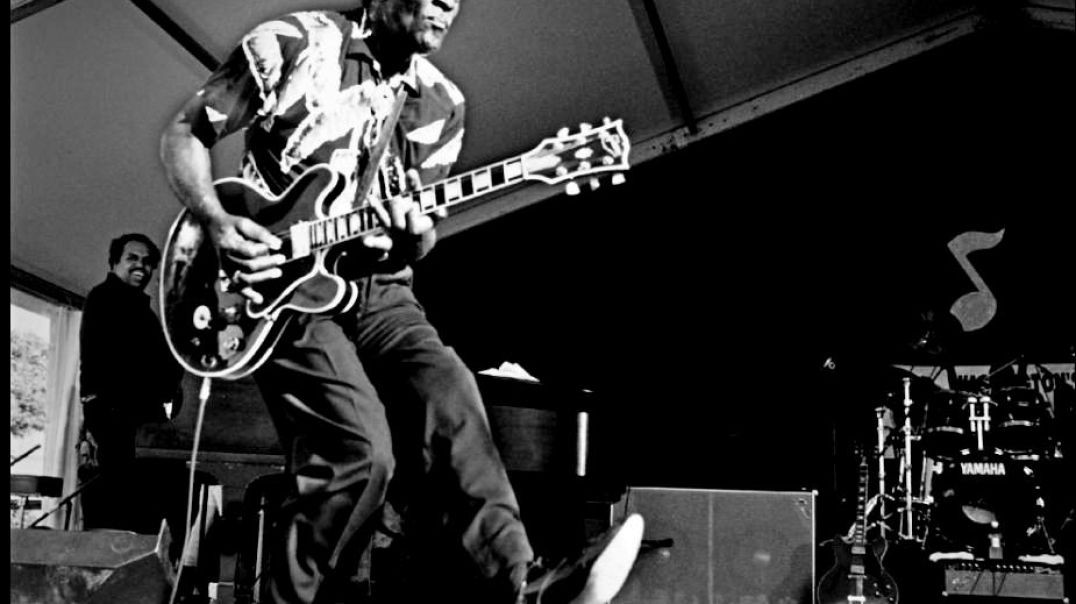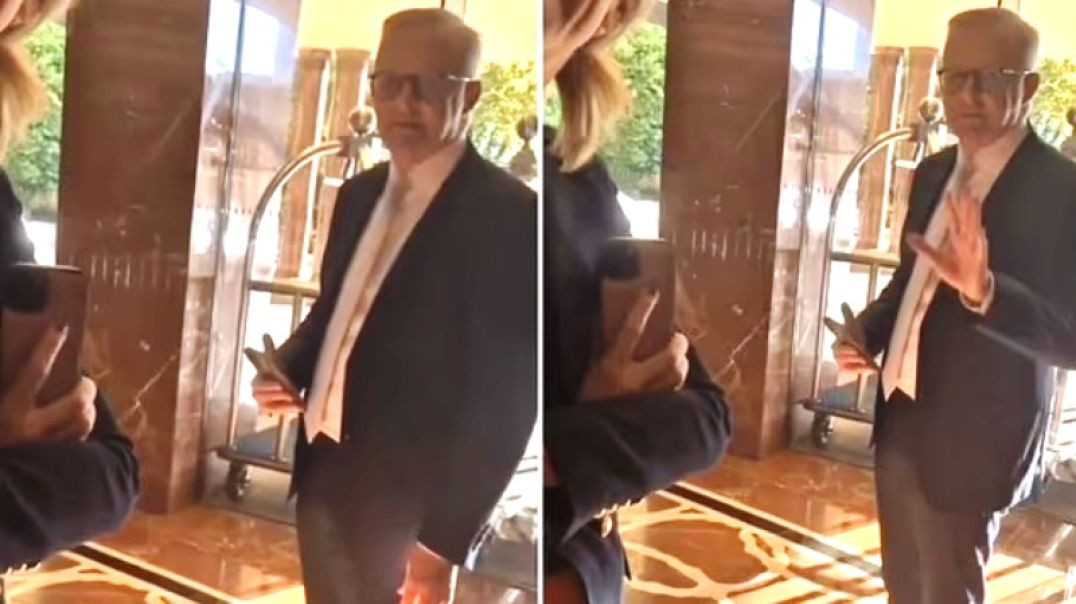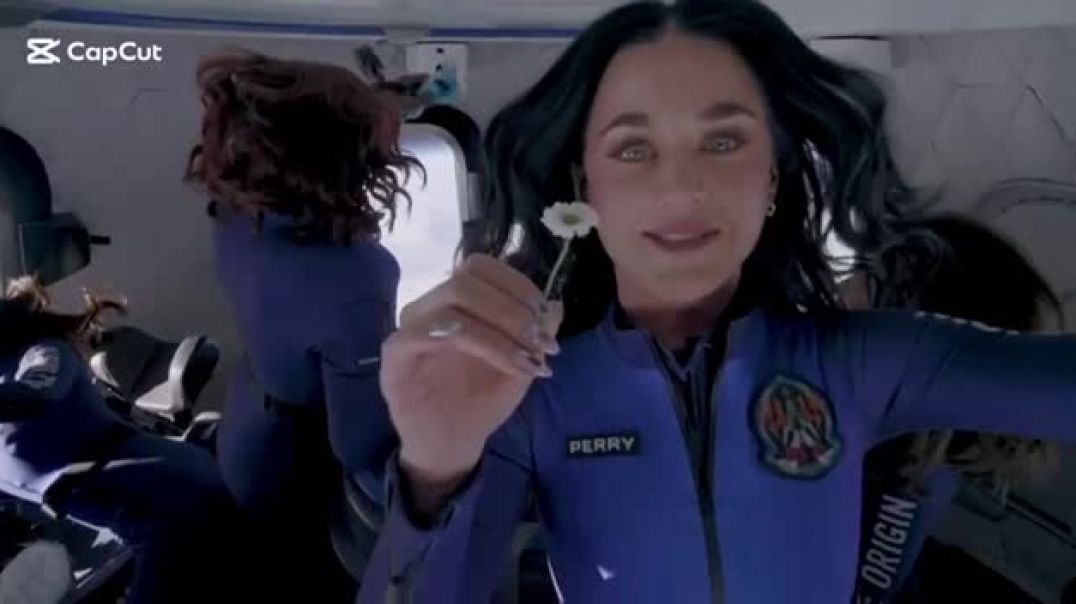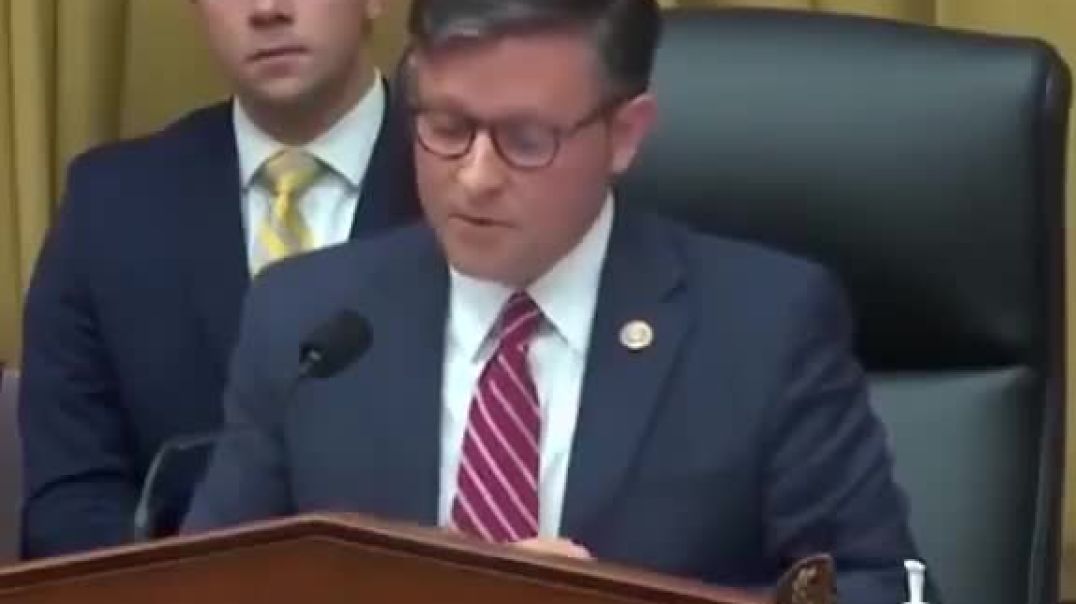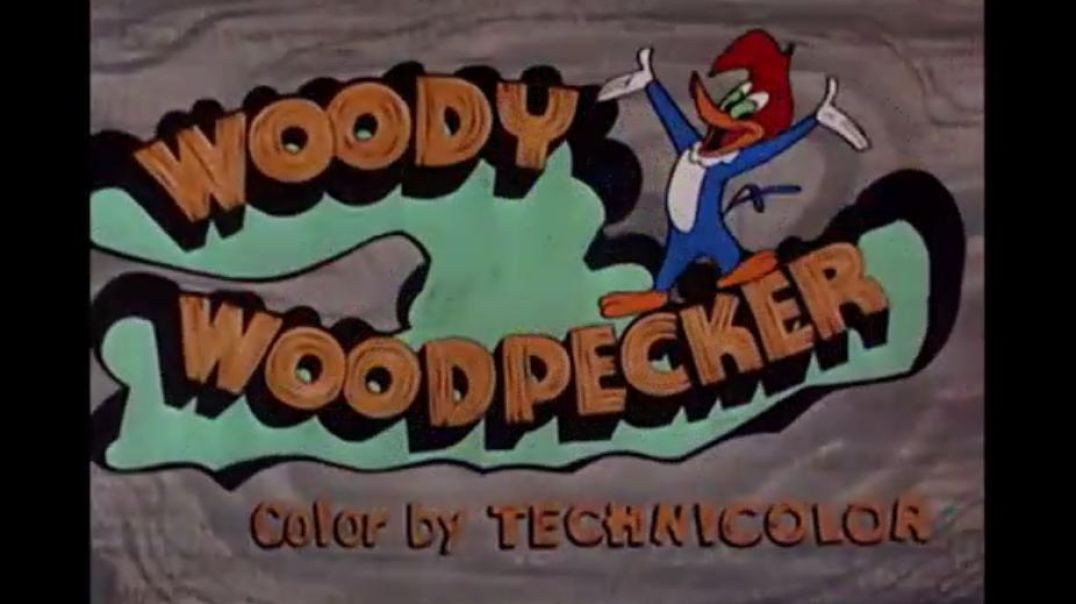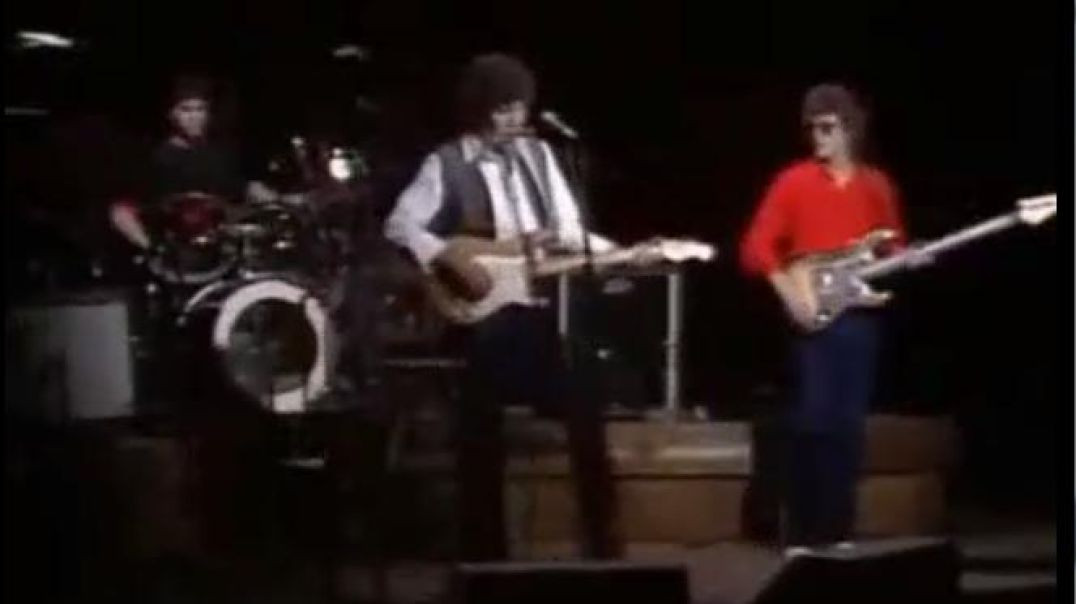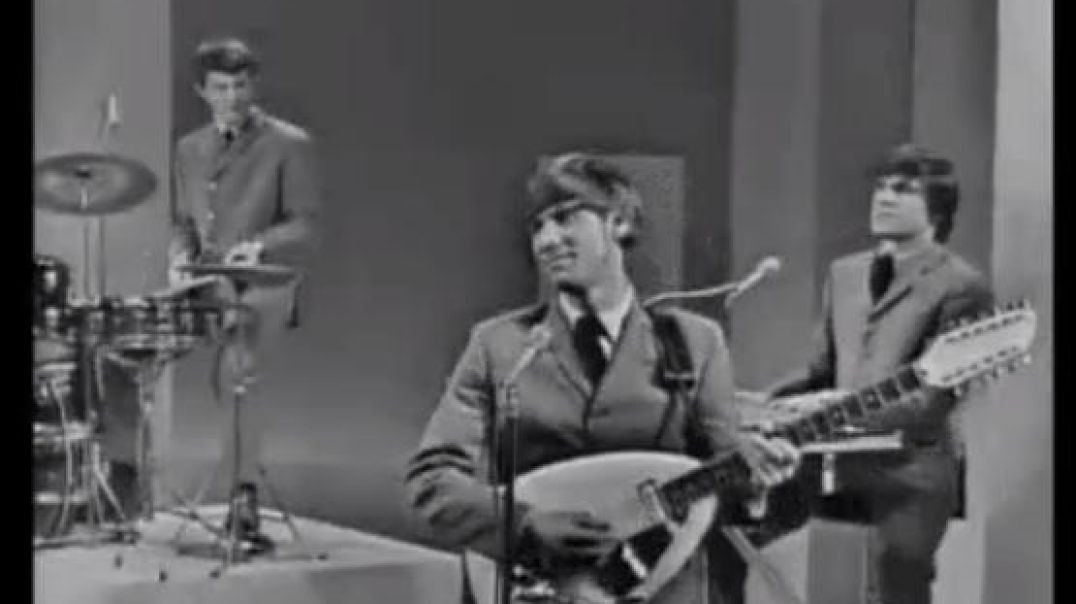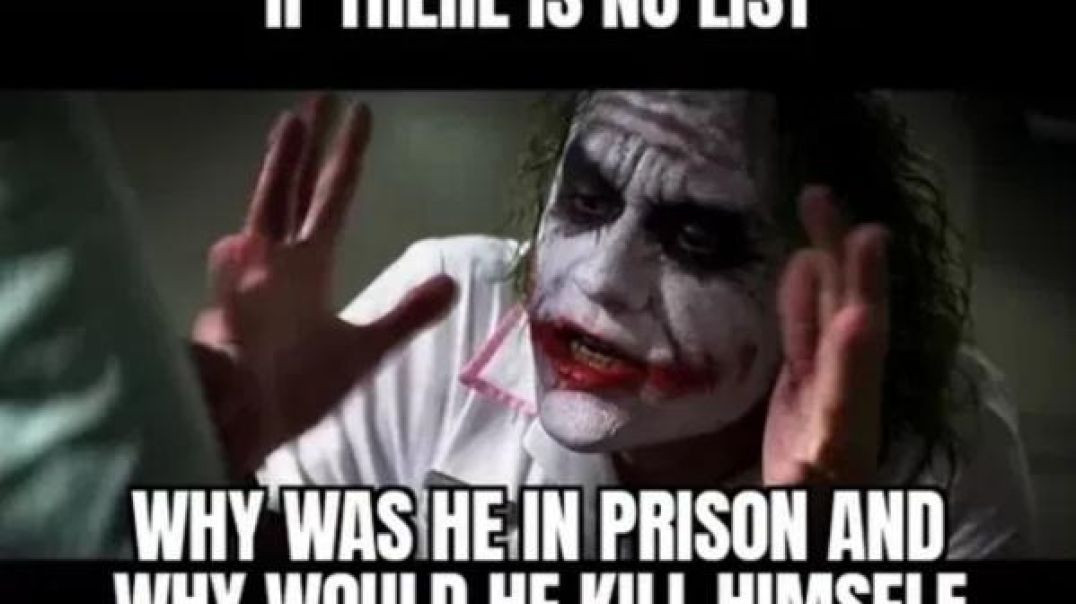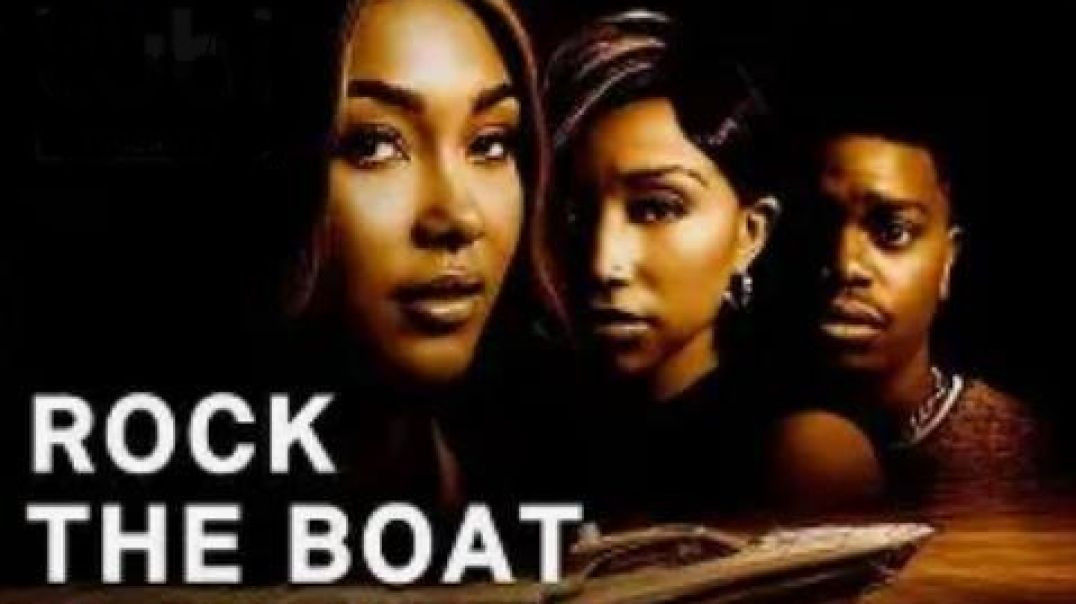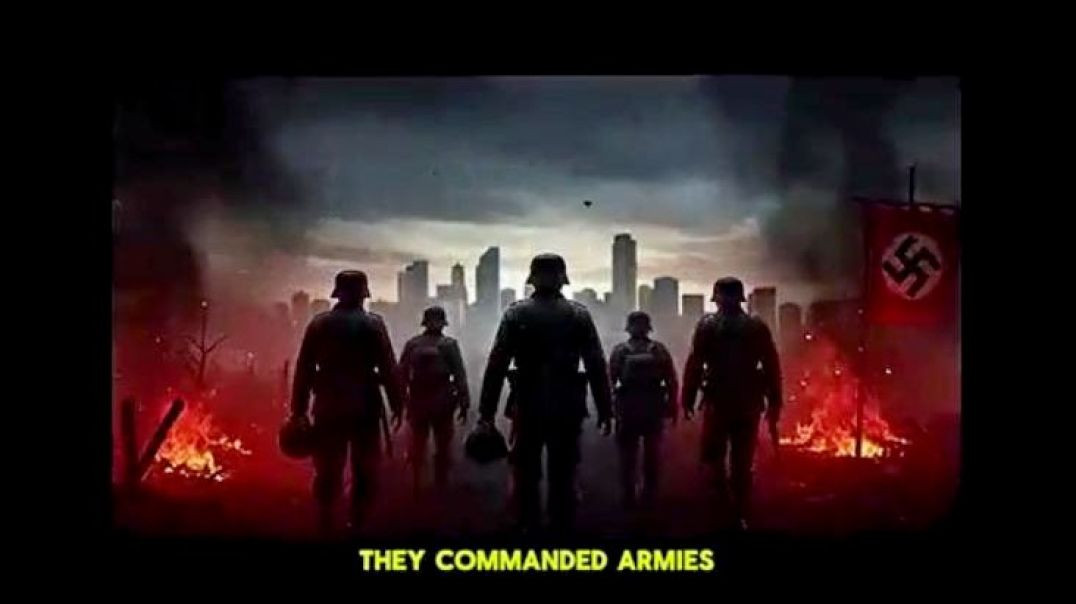Los mejores videos
OUR DAILY OLDIES
CLASSIC CARTOONS
Join Me at Mavericks Bali – A Gathering of Global Game-Changers
Why is Australia being flooded by immigrants
A Melbourne Freedom Rally Activist Managed to Ambush Prime Minister Albanese in the Foyer of the Gra
JUST IN: A Melbourne freedom rally activist managed to ambush Prime Minister Albanese in the foyer of the Grand Hyatt Hotel in Melbourne.
Albo was caught off guard like a deer in the headlights the activist asked "When are you going to put Australians first?"
The Prime Minister's secret service agents quickly intervened and Albo managed to escape the question. Such a weak man...
Source: https://t.me/AussieCossack/35196
From satanic ritual to Fake gravity!
Conspiracy theorists are screaming FAKE over Blue Origin’s flight — claiming real microgravity would’ve sent Katy Perry’s hair flying like NASA’s Suni Williams
Instead? Perfect pop-star bounce — the internet’s not buying!
Source: https://t.me/rtnews/91765
Speaker Mike Johnson reads direct quotes from a gender transition surgeon who operates on minors.
“We’re just kind of learning and figuring out what works— We'll know more in 5 to 10 years, it'll be fascinating to see how all these kids turn out.”
Source: https://t.me/zeeemedia/20516
CLASSIC CARTOONS
OUR DAILY OLDIES (INTERNATIONAL EDITION)
VIDEO PROOF OF WHITE GENOCIDE IN SOUTH AFRICA, SHOWN TO THE SOUTH AFRICAN PRESIDENT IN THE WHITE HOUSE DURING HIS MEETING WITH PRESIDENT TRUMP. I WATCHED THE WHOLE EVENT ON LIVE TV, BUT OF COURSE, I COULDN'T RECORD EVERYTHING. HOWEVER, HERE IS THE MOST IMPORTANT PART, THE OFFICIAL VIDEO SHOWN IN THE WHITE HOUSE, RECORDED FROM THE OFFICIAL WHITE HOUSE ACCOUNT IN 'X' {FORMERLY TWITTER}.
Musk had publicly criticized the massive spending bill championed by Trump, known as the "One Big Beautiful Bill", claiming it undermines the mission of the Department of Government Efficiency (DOGE) and increases the federal deficit, directly contradicting his own mandate to reduce wasteful government spending.
His criticism reportedly strained his relationship with Trump, who nonetheless responded by publicly thanking Musk for his efforts at DOGE.
Elon’s 130-day mandate as a special government employee was set to expire around May 30. Although his term comes to an end, Musk reiterated that DOGE's effort to restructure & shrink the federal government will continue.
Source: https://t.me/LauraAbolichannel/72159
OUR DAILY OLDIES
OUR DAILY OLDIES: THE ANIMALS WERE PART OF THE 'BRITISH INVASION' OF THE MID 1960s. HERE THEY ARE ON LIVE TV SINGING "DON'T LET ME BE MISUNDESTOOD". AS A BONUS TRACK, I INCLUDED THE VERSION FROM SPAIN BY BRUNO LOMAS.
How dangerous is it for Australians to rely on Coles and Woolies for food supply in the event they were unban to restock shelves ?
OUR DAILY OLDIES: CHATTANOOGA CHOO CHOO WAS A VERY POPULAR BIG BAND SONG IN THE 1940s BY GLENN MILLER's ORCHESTRA. WHEN I WAS A LITTLE KID, CHATTANOOGA CHOO CHOO WAS STILL PLAYING ON THE RADIO. THIS IS THE DISCO VERSION OF THE LATE 1970s.
THE TITLE SAYS IT ALL...
OUR DAILY OLDIES
YESTERDAY I PUBLISHED A VIDEO ABOUT HOW HITLER ESCAPED TO ARGENTINA AND DIED OF OLD AGE AT 95. HE WAS NOT THE ONLY ONE. MANY NAZI OFFICERS AND SOLDIERS ALSO ESCAPED TO ARGENTINA AND OTHER COUNTRIES IN SOUTH AMERICA. WITH ONE OR TWO EXCEPTIONS, THEY ALL LIVED WITH NEW IDENTITIES AND DIED OF OLD AGE.
CLASSIC CARTOONS
CLASSIC CARTOONS
